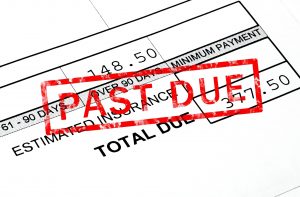What is chapter 7 bankruptcy?
In a chapter 7 bankruptcy case, the bankruptcy trustee gathers and then sells the debtor’s nonexempt assets and proceeds to pay the creditors following the Bankruptcy Code. Some portions of the debtor’s property may be subject to mortgages that pledge the property to other creditors. The code allows the debtor to keep specific exempt properties, but the remaining assets will be liquidated.
One of the main reasons for filing a chapter 7 bankruptcy is to give the debtor the chance of a fresh start. A chapter 7 discharge releases debtors from any personal liability and prevents creditors from taking any further action against them. However, always consult with legal counsel before filing due to the many exceptions regarding chapter 7 bankruptcy.
In this particular bankruptcy case, the debtor’s primary concerns are to retain the exempt property and to receive a discharge that will cover as many debts as possible.
The main reason why chapter 7 is a good option is that it releases you of any obligation to pay off qualifying debt, including getting rid of your credit card balances, loans, and other unsecured debt. However, potential debtors should realize that filing a chapter 7 bankruptcy may lead to property loss.
In addition, to provide complete relief to a debtor, the Bankruptcy Code allows for a chapter 7 case to be cased under chapters 11, 12, or 13 provided the debtor qualifies to file under those chapters.
Who can apply for chapter 7 bankruptcy?
To qualify for filing, the debtor can be an individual or a corporation. However, since corporations do not receive a bankruptcy discharge, businesses often do not file chapter 7 bankruptcy. The relief is available irrespective of the debt or whether the debtor is solvent or insolvent.
This bankruptcy case is not applicable if, during the preceding 180 days, a prior bankruptcy petition was dismissed due to the debtor’s absence in court or the debtor did not comply with the court.
You also need to receive credit counseling from a professional credit counseling company to qualify for chapter 7 bankruptcy.
Why should I consider chapter 7 bankruptcy?
It is the best option for you if:
- You own a small number of properties.
- You have medical bills, credit card balances, and personal loans.
- Your family income does not exceed the given state median for your family size.
What are the benefits of a chapter 7 bankruptcy?
Here are some reasons why it can be helpful:
- The filing is quick and takes about three to six months to complete.
- A full discharge is applicable in the case of chapter 7 bankruptcy, and hence there is no need for a filer to pay into a three-to-five-year repayment plan.
- Most debts are given a full discharge except I the cases of student loans or unpaid child support.
- In this case, there is an option to protect your property. You can keep your necessities and can even retain a house or a car in some cases. This applies if you are current on the payments and attest to your ability to continue making those payments after the bankruptcy case.

What are the essentials needed to file a chapter 7 bankruptcy?
For filing a petition, the debtor must additionally provide:
- A list of your assets and liabilities
- Your current income and expenditures
- Your executory contracts and unexpired leases
- A statement of your financial affairs
- A copy of your tax return of the most recent tax year
Individual debtors must provide in addition to the above:
- A certificate of credit counseling from an accredited company
- A copy of the debt repayment developed by them
- Payment from employers 60 days before filing
- A statement of monthly net income
- Record of debtor’s interest in state or federal education or tuition accounts
People can face financial distress at any point in their life. And sometimes it can seem as if it just shows up out of nowhere to completely wreak havoc on your life as you know it.
Especially in the face of the COVID-19 pandemic, more people are finding themselves strapped for money.
It could be that you fell behind after losing your job. Or that unexpected medical bills arose and you didn’t have a backup plan.
Whatever the circumstance is, recognizing financial distress is one of the first steps in addressing it:
How to Recognize Financial Distress
Having to live in a paycheck-to-paycheck type manner for a few weeks might not necessarily indicate a larger problem.
So, how do you know when you are just having a hard two weeks versus when there is really a problem?
You are using credit cards to pay bills.
Credit cards can be dangerous. And if you are having to rely on your credit card to pay things such as utilities or rent, you know that something is wrong.
While it might keep you going for a little bit, it is ultimately snowballing into a larger problem for later.
You can only make the minimum monthly payments.
When you factor in interest rates, paying merely the minimum monthly payment on credit cards will have you paying far more interest over time. And depending on your balance, this could have you paying on this particular debt for years and years.
Additionally, it is a surefire way to let other creditors know they should probably stay away from you.

Or, you are missing payments altogether.
Making a minimum payment isn’t ideal, but missing a payment entirely is even worse. A string of missed payments can ruin your credit report.
You’re borrowing money from family and friends.
It is always nice to have family and friends who are supportive in your times of need. But you can’t rely on them to be able to support you forever. And some of them might just be giving you an interest-free loan, not a handout.
All of these different scenarios are only digging the hole of your financial trouble deeper. It is important to start working on a plan before it goes any further.
How A Bankruptcy Attorney in Atlanta Can Help
If you are in the midst of financial distress and aren’t sure how to proceed, it might be time to consider bankruptcy.
Bankruptcy, while traditionally looked at through a negative lens, can actually be a positive and structured plan back to normal.
There are different types of bankruptcy, like chapter 7 and chapter 13, to best fit an individual based on their situation.
Don’t wait until it is too late – start exploring your options today.
The Bankruptcy Lawyer You Need
Over the years we have helped many individuals find their way back to a positive financial plan through bankruptcy.
Schedule your complimentary consultation to discuss restarting your financial future with our experienced bankruptcy attorneys today.
The COVID-19 pandemic has taken a toll on people in more ways than one. While it undoubtedly has physical effects, it has also presented challenges in people’s financial lives.
Unfortunately, the outbreak continues and many people are beginning to worry about how to get out of where they are at now financially.
When making any decision, it is important to consider all your options. For some, bankruptcy is the right option. But it isn’t the only option.
Here are some solutions to consider if you have been financially affected by the COVID-19 pandemic:
Tips to Avoid Bankruptcy
If you have found yourself with mounting debt, you aren’t alone. Many Americans have debts. While some debt is a result of overspending. it is most commonly caused by uncontrollable circumstances.
Before you jump to file bankruptcy, it is recommended that you try some of these other methods to get your debt under control:
Cut your expenses.
When it comes to getting your finances in order, it is important to know exactly where your money is going. Oftentimes, you can find money to pay off the debt by determining areas where you are currently spending that are unnecessary.
Create a list of all your expenses and cut where you can.
Prioritize your debts.
 In your list of expenses should also be a list of all your debts. Many people make the mistake of blindly paying off debt. but it is more efficient if you do it with a plan.
In your list of expenses should also be a list of all your debts. Many people make the mistake of blindly paying off debt. but it is more efficient if you do it with a plan.
Determine which ones have the highest interest rate and mark those as a top priority. From there, make the minimum payment on all other debts and put as much as you can toward those top priority debts.
Negotiate with creditors.
Did you know you can negotiate with your creditor? There is no guarantee anything will change, but it is worth a try.
Contact your creditors as soon as you realize you are struggling. Ask if they are able to reduce interest rates, change the payment terms or reduce your fees.
Negotiate hard – most aren’t willing to negotiate more than once.
Bankruptcy Is an Option
If you have tried all other options and still need help, filing bankruptcy might be an option for you.
Your financial situation will determine which type of bankruptcy you qualify for and which is best for you.
There is chapter 7, chapter 13, and chapter 11 when it comes to personal bankruptcy.
The most common form of bankruptcy is chapter 7 and is a fairly quick way to discharge most, if not all, of your debts. If you don’t qualify for chapter 7 and just need time to “catch up,” then chapter 13 is another option.
Lastly, if you want the benefits of the chapter 13 repayment plan but your debt is too high, there is chapter 11. Each chapter comes with different requirements and factors, which is why hiring a bankruptcy lawyer to guide you is best.
Filing Bankruptcy? We Can Help!
Bankruptcy is one of our specialties. If the pandemic has you looking for financial relief, we’re here to help you navigate the road to that.
Bankruptcy laws are complicated, and mistakes in a bankruptcy case can be costly. It is always in your best interest to do a quick search for “this is attorney near me” to work with.
But of those results, you don’t want to choose just anyone. Experience is key in these cases.
Benefits of Working with a Bankruptcy Lawyer
Before you even file for bankruptcy, a bankruptcy attorney can help you determine if this is the best route for you.
And if this is the best route, they can help you decide which chapter will offer you the most financial relief.
Then once you decide to move forward, they can help with:
- Providing advice on the timing of your filing.
- Offering guidance on your assets in the proceedings
- Completing the paperwork.
- Representing you at the meeting of creditors.
Ultimately, by hiring an attorney, you will have someone in your corner.
So, how do you narrow down the search results?
What to Look for in a Bankruptcy Attorney
Here are a few traits to look for and a few questions to ask:
Do they communicate regularly?
A lack of openness could cause problems during the process. While you might not be handling the case yourself, it is important that you know all the happenings of your case.
A good bankruptcy attorney will regularly communicate with you to let you know where the process is at, what to expect next and to answer any questions you might have.
Do they specialize in bankruptcy?
Bankruptcy laws are very complicated. Your attorney should understand the most-minute details of the law and how it might impact you and your case.
While some attorneys might do this, it is preferred that you work with one who considers this one of their main specialties.
How many cases do they file each year?
Roughly 50 cases a year is a notable volume for a bankruptcy attorney. It is important to make sure they are actively working on it cases so they are up-to-date with all of the latest information.
This is also a good demonstration of how successful they are in this practice area. If clients keep coming to them, they must be doing something right.
What are their fees?
Attorney fees generally cover most of the services required for a bankruptcy case. But it is important to ask if any services are excluded from this. Additionally, if any additional fees are included.
We’ve Got the Experience You’re Looking For
 Experience is invaluable when it comes to a bankruptcy case, and we have plenty of it!
Experience is invaluable when it comes to a bankruptcy case, and we have plenty of it!
Whether your needs are for personal or business bankruptcy, we are well equipped to take on your case.
Call us today to learn more about your options.
For further information and to ensure a way to secure your financial future, schedule a complimentary consultation with The Wright Law Alliance. We have over 25 years of experience helping Georgia residents successfully navigate bankruptcy and help individuals and companies get back on their feet. Call us now.


Leave A Comment